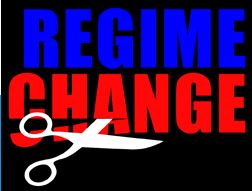Regime Change in the Trump White House?
No U.S. postwar president has managed to reset relations with Russia. Now the Trump administration must cope with a special counsel’s investigation. In the past, US efforts at regime change targeted foreign countries; today, the White House. How will it impact Trump’s stalled policy agenda?

As I argued in spring 2016 (TWFR, April 25, 2016), US election is a global risk and it would continue to be fought after the Trump election win. But recently, these political struggles moved to an entirely new phase. First, the Department of Justice (DOJ) dismissed James Comey, Director of the Federal Bureau of Investigation (FBI), reportedly only days after his request for increased resources to investigate Russia’s alleged interference in the election.
Barely a week later, DOJ appointed Robert Mueller, former director of the FBI (2001- 13) as special counsel overseeing the investigation into alleged Russian interference in the 2016 election. There is little doubt about the political outcome of the Mueller investigation. Just as he loyally served under President George W. Bush, along with Defense Secretary Donald Rumsfeld and Vice President Dick Cheney’s neoconservatives, he is unlikely to treat any Russian initiative – whether planned, unintended, alleged, or misrepresented – with silk gloves.
There is little doubt about the political outcome of the Mueller investigation.
So from the White House’s perspective, the end result is known. Consequently, it is the process that has potential to undermine the effectiveness of the presidency.
In order to assess the probable impact of the investigation on Trump’s stalled policy agenda, it is important to understand what is actually new in his trade, political and military stances.
Obama-Bernanke origins of Trump’s anti-EU rhetoric
During a bruising series of meetings in the NATO summit in Belgium and at the G-7 gathering in Italy, President Trump was quoted as calling Germany “very, very bad” on trade, which the White House denied, however.
That was followed by German Chancellor Angela Merkel’s speech, which was perceived as historical in Europe, and in which she said that “the times in which we can fully count on others are somewhat over.”
While Merkel’s Atlanticist supporters saw the speech as signaling the end of the postwar Western consensus, it was also geared to Merkel’s domestic constituencies to pave way for victory in the German federal election in September 2017.
Also, Trump’s accusations of excessive German trade deficits and Western Europe’s freeride at NATO are hardly new. He has made them repeatedly in the past two years. And truth to be told, so did President Obama. Trump is neither the first nor unique in his criticism of Europe.
Following the end of the Cold War, every US president, in one way or another, has engaged in similar criticism. The notion that Europeans are “free riders,” enjoying the benefits of an international order safeguarded by the U.S. without contributing much to it, is an old one in Washington.
Trump is neither the first nor unique in his criticism of Europe.
Soon after he received his Nobel Peace Prize, Obama began to complain about those NATO members who do not pay their “fair share” in global affairs. In particular, he launched an “anti-free rider campaign” in which, among other things, he pushed his European allies to lead the NATO intervention in Libya in 2011 – “to prevent the Europeans and the Arab states from holding our coats while we did all the fighting.”
What about deficit criticism? That’s not unique to Trump either. Following the global financial crisis, both Obama and former Fed chief Ben Bernanke often argued that “Germany’s trade surplus is a problem.” Unlike China, which has been working to reduce its dependence on exports since the early 2010s, Germany has not. As a result, Obama and Bernanke often pleased Chancellor Merkel to launch Keynesian investment initiatives and promote German consumption so that European recovery could happen faster, but without success. To Obama and Bernanke, that was frustrating; to Trump, hypocrisy.











Leave A Comment